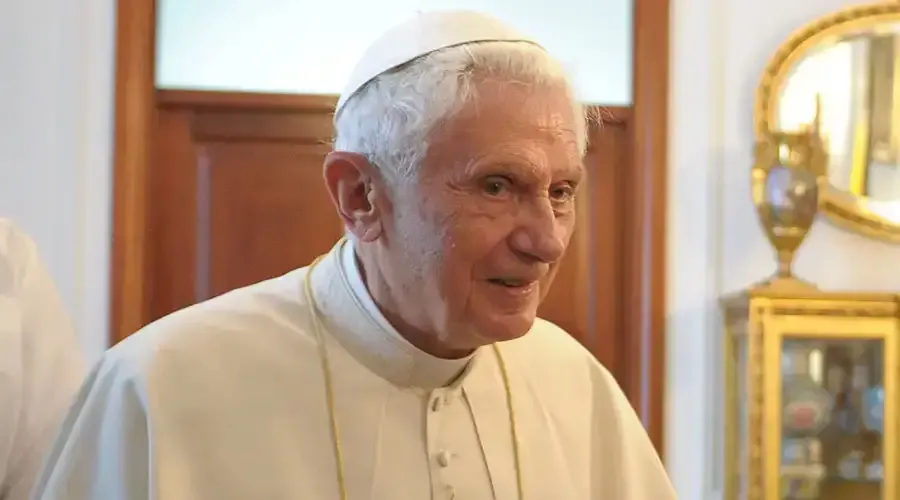Vatican, 23 September, 2022 / 12:23 pm (ACI Africa).
In a new letter, Benedict XVI praised the story of a woman who lived “the inner drama of being a Christian” and dedicated her life to the spiritual encounter with Christ in eucharistic adoration and other practices.
The pope emeritus wrote that his own personal experience was similar to what Mother Julia Verhaeghe went through in a letter to the author of a new biography.
The writer, Father Hermann Geissler, is a former official at the Congregation for the Doctrine of the Faith and a member of the Spiritual Family “The Work” that Mother Julia founded and Pope John Paul II designated as a family of consecrated life in 2001.
In his letter to Geissler, made available to CNA, Benedict did not hide the fact that he had “the fear that her life could be of little interest as a whole because it lacks any external drama.”
Benedict praised the author for making “the inner drama of being a Christian visible, writing a genuinely fascinating biography. The external path of this life, which leads from Belgium through Austria and Hungary to Rome, with a focal point in Austria, becomes a reflection of the interior path through which this woman was led.”
“In this way, the true drama of life becomes visible, which is found above all in the encounter with Paul and, through him, with Christ himself, allowing others to retrace it,” Benedict added.
“All the external and internal drama of faith is present in her life. The tension described here is particularly captivating because it is similar to what I have experienced since the 1940s.”
The biography, titled “She Served the Church: Mother Julia Verhaeghe and the Development of The Spiritual Family The Work,” explores the period from 1950 to 2001, from the second postwar period to the recognition of the Family, four years after the founder’s death in 1997.
The book is divided into four parts and includes testimonies, excerpts from Mother Julia’s letters, and other archival documents. Furthermore, the book contextualizes the life and choices of Mother Julia, connecting them to the situations of the time, of which Mother Julia was a careful observer.
In the introduction, Father Thomas Felder and Sister Margarete Binder wrote that “the following pages tell of a woman who had neither a particular culture, nor good health, nor any economic means.” Yet, they added, “a fire burned in her heart.”




